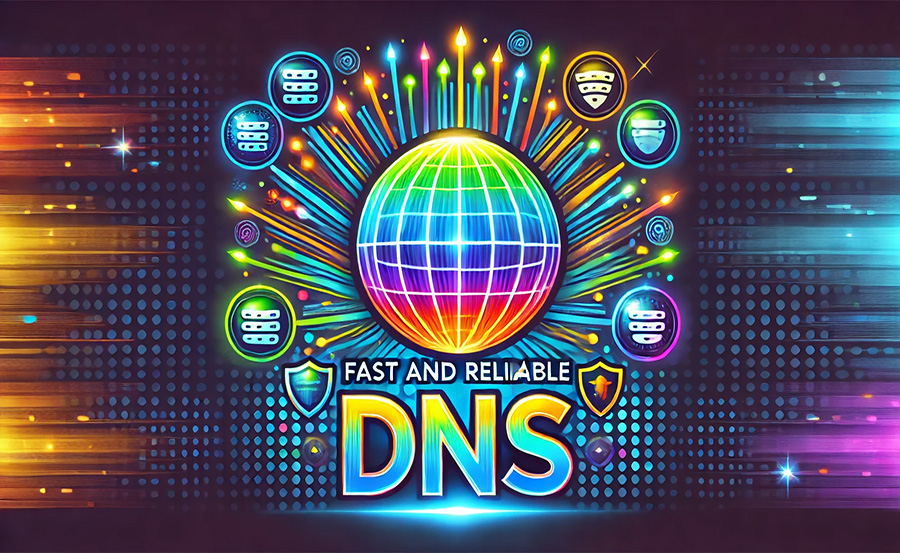The world of live sports broadcasting has evolved dramatically, with IPTV platforms becoming the go-to choice for millions of fans worldwide. However, one of the key challenges users face when streaming live IPTV sports is latency. Low-latency streaming is critical for an uninterrupted viewing experience, especially for sports where every second matters. This guide will explore how DNS (Domain Name System) plays a crucial role in achieving low-latency streaming for IPTV sports, review the best low-latency DNS options, and provide actionable tips to optimize DNS performance. Buy 1 year IPTV Subscription
Understanding DNS and Its Role in IPTV Streaming
What is DNS?
DNS is the backbone of the internet, acting as a directory that translates human-readable domain names (like example.com) into IP addresses understood by computers. For streaming IPTV sports, DNS ensures the requested streaming service is resolved quickly and efficiently.
How DNS Impacts Latency in IPTV Streaming
- Resolution Time: A slow DNS server can delay the connection to the IPTV server, causing buffering or delayed playback.
- Geo-Restrictions: Some IPTV services use DNS to enforce regional content restrictions, and bypassing these can require specialized DNS services.
- Network Congestion: A poorly configured or overloaded DNS server can contribute to higher latency and packet loss, especially during high-demand events like major sports finals.
Characteristics of a Good Low-Latency DNS Service
When choosing a DNS for live IPTV sports streaming, look for the following:
- Low Resolution Time: Quick response times for resolving domain names.
- Geographic Proximity: DNS servers located near your location or the streaming server reduce latency.
- Smart Routing: Some DNS services offer intelligent traffic routing for faster connections to content servers.
- High Availability: Redundant servers ensure uptime during peak traffic.
- Support for Geo-Unblocking: Many IPTV sports streams are region-locked, so DNS services with unblocking features can be crucial.
Best Low-Latency DNS Options for Live IPTV Sports
1. Google Public DNS (8.8.8.8 and 8.8.4.4)
- Advantages:
- High reliability and uptime.
- Fast response times globally.
- Free to use.
- Disadvantages:
- Lacks advanced features like geo-unblocking.
- May not always be the fastest option depending on your location.
2. Cloudflare DNS (1.1.1.1 and 1.0.0.1)
- Advantages:
- Marketed as the “fastest DNS resolver.”
- Strong privacy policies (does not log IP addresses).
- Free and easy to set up.
- Disadvantages:
- Limited geo-unblocking capabilities.
3. OpenDNS (208.67.222.222 and 208.67.220.220)

- Advantages:
- Customizable filtering options.
- Excellent security features.
- Reliable performance.
- Disadvantages:
- Premium plans may be required for advanced features.
4. SmartDNS Providers (e.g., Unlocator, SmartDNSProxy)
- Advantages:
- Specifically designed for streaming services.
- Supports geo-unblocking of region-locked IPTV sports.
- Low-latency optimized routes for streaming.
- Disadvantages:
- Usually requires a subscription fee.
- Setup can be more complex than standard DNS options.
5. Quad9 (9.9.9.9)
- Advantages:
- Focuses on security with malware filtering.
- Decent performance for global users.
- Free service.
- Disadvantages:
- Slightly higher latency compared to Cloudflare or Google DNS.
How to Optimize DNS for Low-Latency Streaming
1. Measure Current DNS Performance
- Tools like
NamebenchorDNS Benchmarkcan help identify the fastest DNS server for your location. - Test different DNS servers and compare response times.
2. Configure DNS on Your Device or Router
- For IPTV Boxes:
- Access network settings and manually input the DNS server addresses.
- For Routers:
- Configure DNS settings directly on your router to apply changes across all connected devices.
3. Use a VPN with Integrated Smart DNS
- Some VPN providers offer Smart DNS as part of their service, allowing you to bypass geo-restrictions while maintaining low latency.
4. Enable Caching
- Use a DNS server with caching to reduce repeated resolution times for frequently accessed domains.
5. Select Servers Closest to You
- Many DNS services offer multiple server locations. Choose one geographically close to your location or the streaming server.
Benefits of Low-Latency DNS for Live IPTV Sports
- Reduced Buffering: Faster DNS resolution minimizes playback interruptions.
- Improved Streaming Quality: Supports HD and 4K streaming by maintaining a stable connection.
- Real-Time Reactions: Essential for live sports enthusiasts who want to avoid delays compared to live TV broadcasts.
- Unblocking Geo-Restricted Content: Access region-locked sports events without compromising speed.
Potential Pitfalls and How to Avoid Them
Pitfall 1: Using Overcrowded Free DNS Servers
- Solution: Regularly benchmark your DNS to ensure optimal performance.
Pitfall 2: Geo-Blocking Issues
- Solution: Use a SmartDNS service or a VPN with DNS integration for geo-unblocking.
Pitfall 3: ISP Interference
- Solution: Some ISPs hijack DNS requests. Use DNS-over-HTTPS (DoH) or DNS-over-TLS (DoT) to encrypt DNS queries.
Final Thoughts
For live IPTV sports enthusiasts, low-latency DNS options are indispensable for an optimal viewing experience. By selecting a DNS provider tailored to your needs—whether it’s raw speed, geo-unblocking capabilities, or robust security—you can significantly enhance your streaming experience. Tools and techniques like benchmarking, router-level configuration, and using Smart DNS services further ensure a smooth and enjoyable live sports experience.
How to Watch IPTV with Custom Channel Groups

